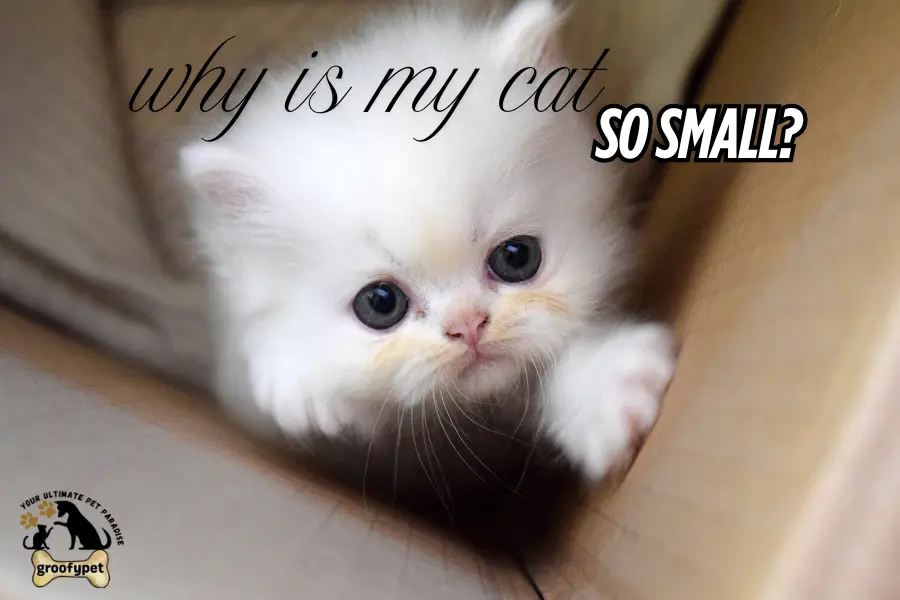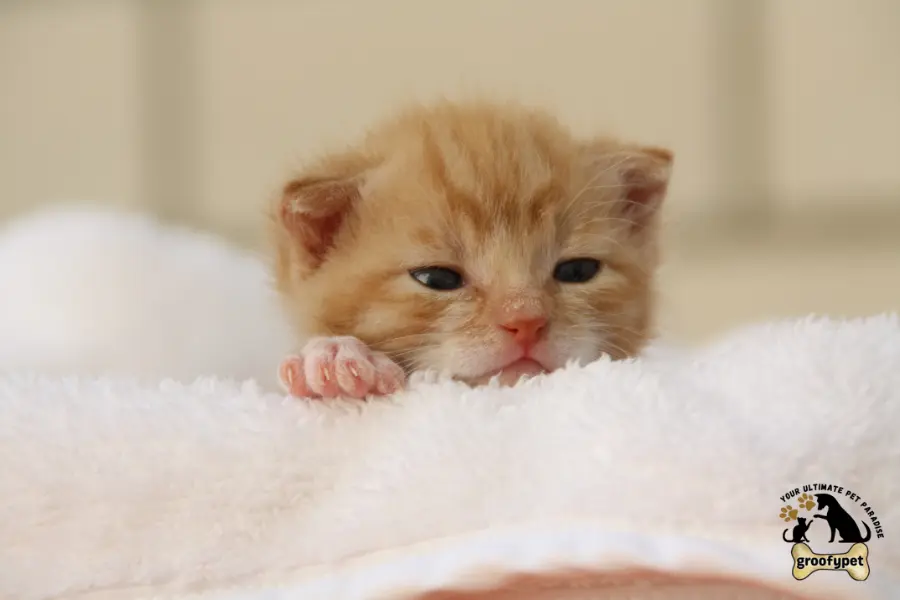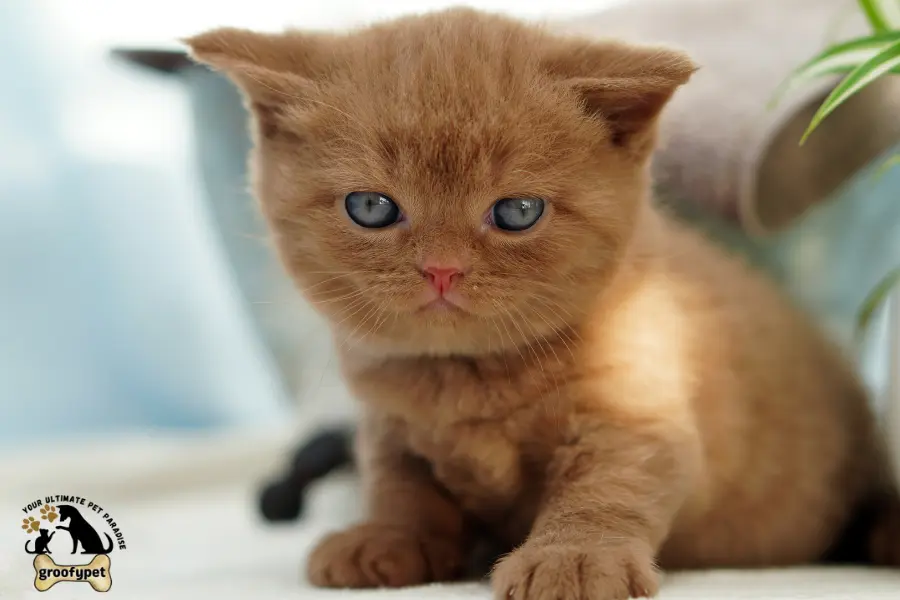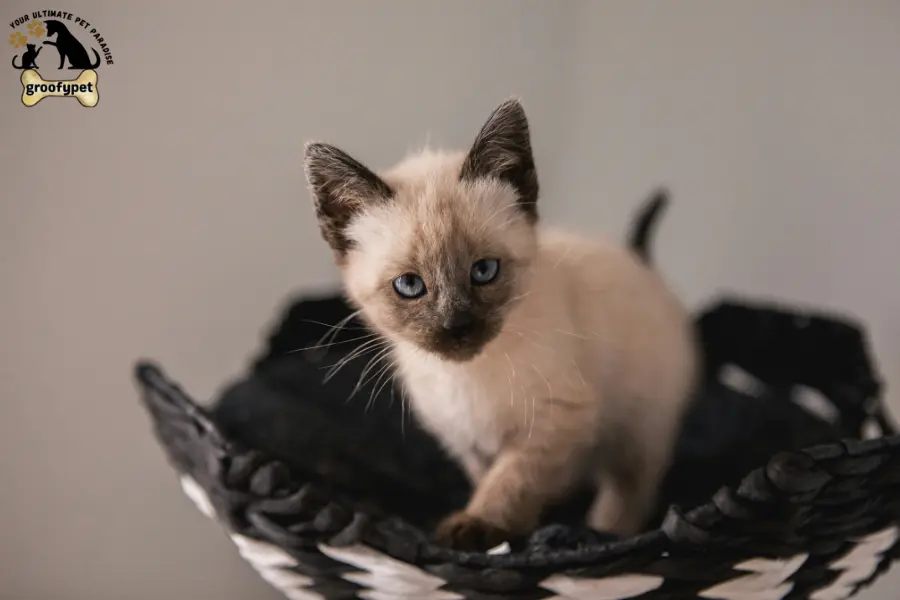
Small cats are cute. Honestly, though, so are medium cats and large cats; really, all cats are cute! But if you’re a proud cat parent to a tiny kitty, you might be wondering, “Why is my cat so small?” This is a pretty common thought, especially when you’re comparing your cat to others that seem bigger or more “average” in size.
Did you ask yourself, “Why is my cat so small?” Maybe your cat looks smaller than others, or someone has mentioned how tiny they are. It’s natural to adore your little cat just as much as a bigger one, but it’s also smart to understand why your cat is small. There’s no need to worry — it’s just the way they are. Other times, though, a small size can be a sign of an underlying issue. Here, we’ll explore six possible reasons why a cat might be small. Some are harmless, while others may require a vet’s attention.
Read on to learn more about small cats, what’s considered normal, and when you might want to be a little more concerned.
Table of Contents
Toggle10 Reasons for why is my cat so small?
There are a few reasons why your cat might be on the smaller side. Breed, sex, age, and genetics all play a part in how big (or small) a cat will be. Sometimes, things like nutrition or certain medical conditions can also affect your cat’s size.
1. Breed
Just like some dogs are bred for certain traits, some cats are naturally small because of selective breeding. Breeders have developed certain cat breeds to have specific sizes and looks.
For example, Maine Coons and Savannah Cats are known for being large, while breeds like the Singapura and Munchkin are famous for their tiny size. When these small cats have kittens, their babies can be even smaller than the average house cat.
2. Poor diet
Is it for a poor diet? If a kitten doesn’t get proper nutrition or diet, it may not grow as big or strong as it should, especially if it lacks good food during its early weeks. These days, it’s uncommon for poor growth to happen just from bad food since most store-bought kitten food meets AAFCO standards and has the right nutrients.
However, if a kitten isn’t eating enough or the food lacks what it needs, its growth can be affected. Kittens need plenty of protein for healthy muscles, calcium for strong bones, and enough energy from their food to support proper growth and development.
3. Dwarfism
Why is my cat so small? Some cats are small because they have a condition called dwarfism, which affects their bone growth and makes them look different from other cats. Certain breeds, like the Munchkin cat, are different because of their short legs.
A specific type called achondroplasia, which happens due to a genetic change that causes the cat’s bones to stop growing too early, leaving them with short legs and a small size, which is normal for their breed. If you notice your cat has unusual features or dwarfism, it’s best to visit the vet for proper care of your cat.

4. Parasites
Parasites like intestinal worms lead to weight loss in adult cats and kittens. Common internal parasites include tapeworms, roundworms, pinworms, and hookworms, and some of these can be passed to humans. Cats with parasites may also show symptoms like changes in appetite, vomiting, diarrhea, and a swollen abdomen. Veterinarians recommend giving your cat regular anti-parasite treatments and keeping them healthy.
5. Fleas
When a kitten has fleas, it uses up a lot of energy to fight off the effects of the infestation. You’ll likely notice your kitten scratching frequently, and their skin may have small red bumps. If you look closely, you might even see tiny fleas moving through the fur — they often look like little specks of black pepper.
To treat a flea problem, it’s best to consult your veterinarian for the right medication. Be especially careful with over-the-counter products, as many are not safe for very young or lightweight kittens.
6. They’re Female
In many animals, males and females often look different, and cats are no exception. Male cats are usually larger and heavier than females. But this isn’t always the case — sometimes, even within the same breed, female cats are just naturally smaller.
Male cats that haven’t been neutered often grow bigger because of the hormone testosterone, which builds muscle. Interestingly, male kittens usually start off smaller than females but later outgrow them as they mature.
7. They’re Still Growing
Why is my cat so small? If your cat is young, it may simply not have reached its full size yet. Most cats finish their main growth by around one year old, but they don’t fully mature until they’re about 18 months.

Some larger breeds, like the Maine Coon, can keep growing for up to two years. Kittens grow quickly between 6 and 8 months, but after their first birthday, their growth slows down. How big your cat will get largely depends on its breed.
8. Medical Issues
If you’re worried about your cat’s size or weight, it is important to visit a veterinarian to check for any underlying health issues. Certain genetic factors affect your cat’s growth, and various illnesses may lead to weight loss or poor condition. A thorough vet checkup is an important step to ensure your cat’s health.
9. liver shunt
A liver shunt is a congenital condition in kittens where blood bypasses the liver, stopping it from carrying out essential tasks like metabolism needed for healthy growth. Your veterinarian can diagnose a liver shunt using X-rays or an ultrasound, and treatment often requires surgery. Work closely with your vet to create the best care plan for your kitten.
10. Not give proper feeding
For Feeding cats the wrong food affects their growth during kittenhood, when proper nutrition is important for healthy development. Once kittens are around 8 weeks old, it’s the owner’s responsibility to provide a balanced, meat-based diet suited to their age, health, and activity level.
If you’ve adopted a small adult cat, their size may be linked to poor nutrition earlier in life, whether from lack of food or an unbalanced diet. Even now, if your cat’s current food isn’t meeting its nutritional needs, it can result in weight loss or stunted growth.
Also Read : Chinchilla British Shorthair
Are Some Cats Always Small?

Yes — certain breeds like Singapura and Siamese are naturally small and will stay that way for life. If your cat has small-breed parents or mixed genes from them, it may also stay petite. While many factors affect a cat’s final size, genetics usually play the biggest role.
Is it okay if my cat is small?
Why is my cat so small? If your cat is small but seems healthy and happy, there’s usually no need to worry. However, if you notice signs like poor growth or weight loss, it’s a good idea to visit the vet. Some medical conditions, especially in kittens, can slow down growth or prevent weight gain.
Must Read : Persian Mix Maine Coon
Final Thoughts
Some cats are just naturally small, while others may be affected by health issues that limit growth. Why is my cat so small? You can often guess your cat’s adult size by looking at its parents or breed. Remember, being smaller than average isn’t a problem as long as your cat is healthy. If you’re ever unsure, check in with your vet for peace of mind.
We all love our cats, no matter their size or shape. Why is my cat so small? If you ever think about it, If you have a small cat, it’s usually just due to their age, breed, or sex and is often completely normal. But if you’re worried that your kitten isn’t growing as expected or notice changes in your adult cat’s weight, appetite, or eating habits, it’s always wise to visit a veterinarian for a check-up.
Frequently Asked Questions
Are There Calico Male Cats: A Rare and Magical Wonder of Nature!



